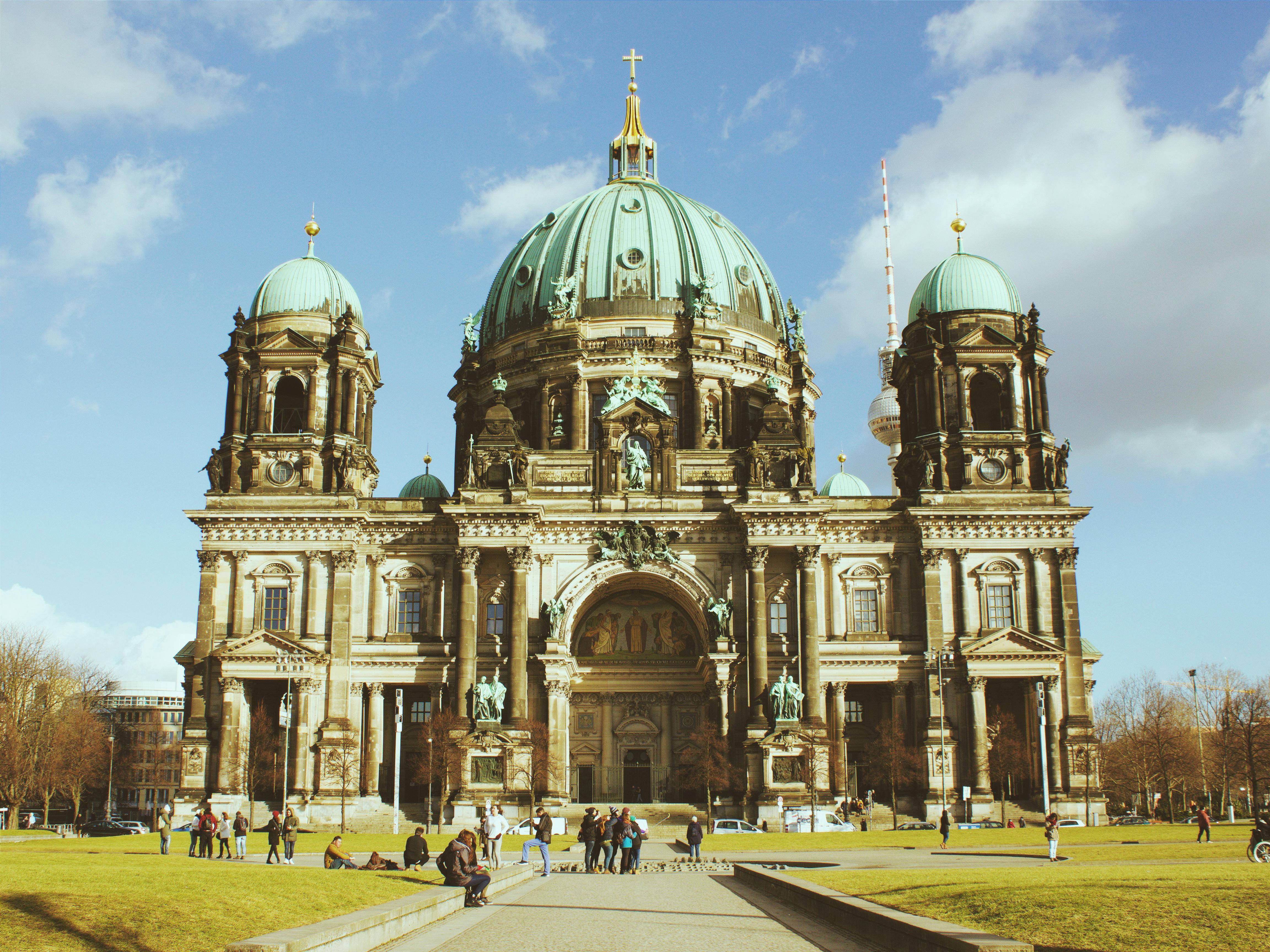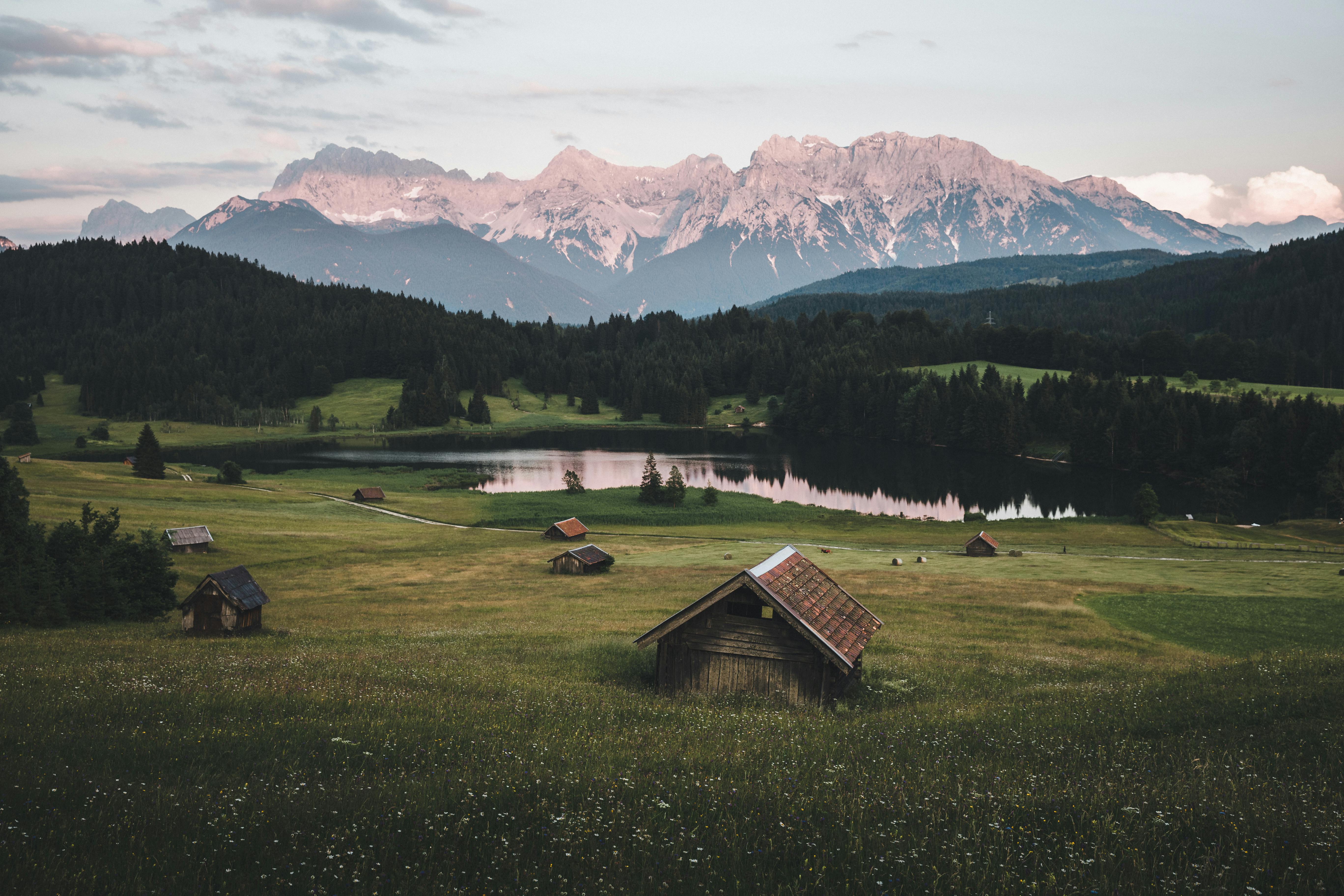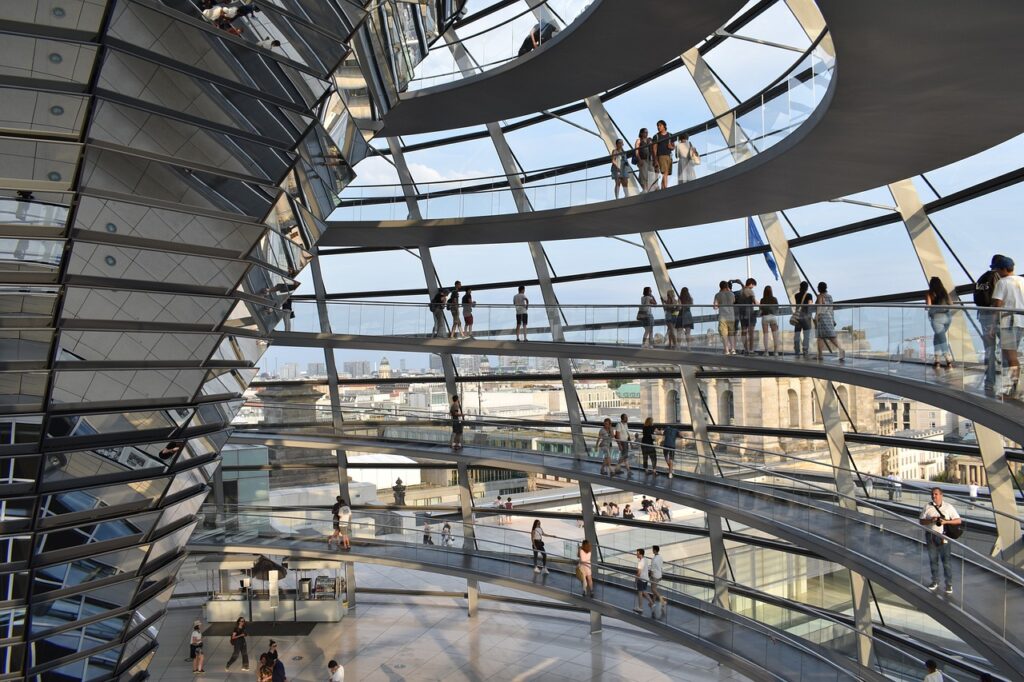Germany is a land known for its vivid culture, rich history, and breathtaking landscapes; therefore, the promise of cheap but worthy travel always makes a call to the chips from around the world. For the dashing and daring, Germany shall reveal a great abyss of inexpensive options-full of those undiscovered gems and unforgettable experiences.
As a brokebackpacker, walking through Germany may seem scary, but its open hospitality, smooth transport, and budget accommodations will face you towards visiting Germany. In Berlin with its grungy style, through traditional Munich beer halls, Hamburg’s maritime flavor, to the wondrous Black Forest-every region has its unique privilege.
This blog will cover backpacking Germany on a budget in that the artist gets to choose the nook and cranny of cheap accommodation, eat local, and be surprised by local wonders. Join us on this adventure that takes us through the heart of Europe, where history meets modern innovation and where adventure awaits you at each and every turn.
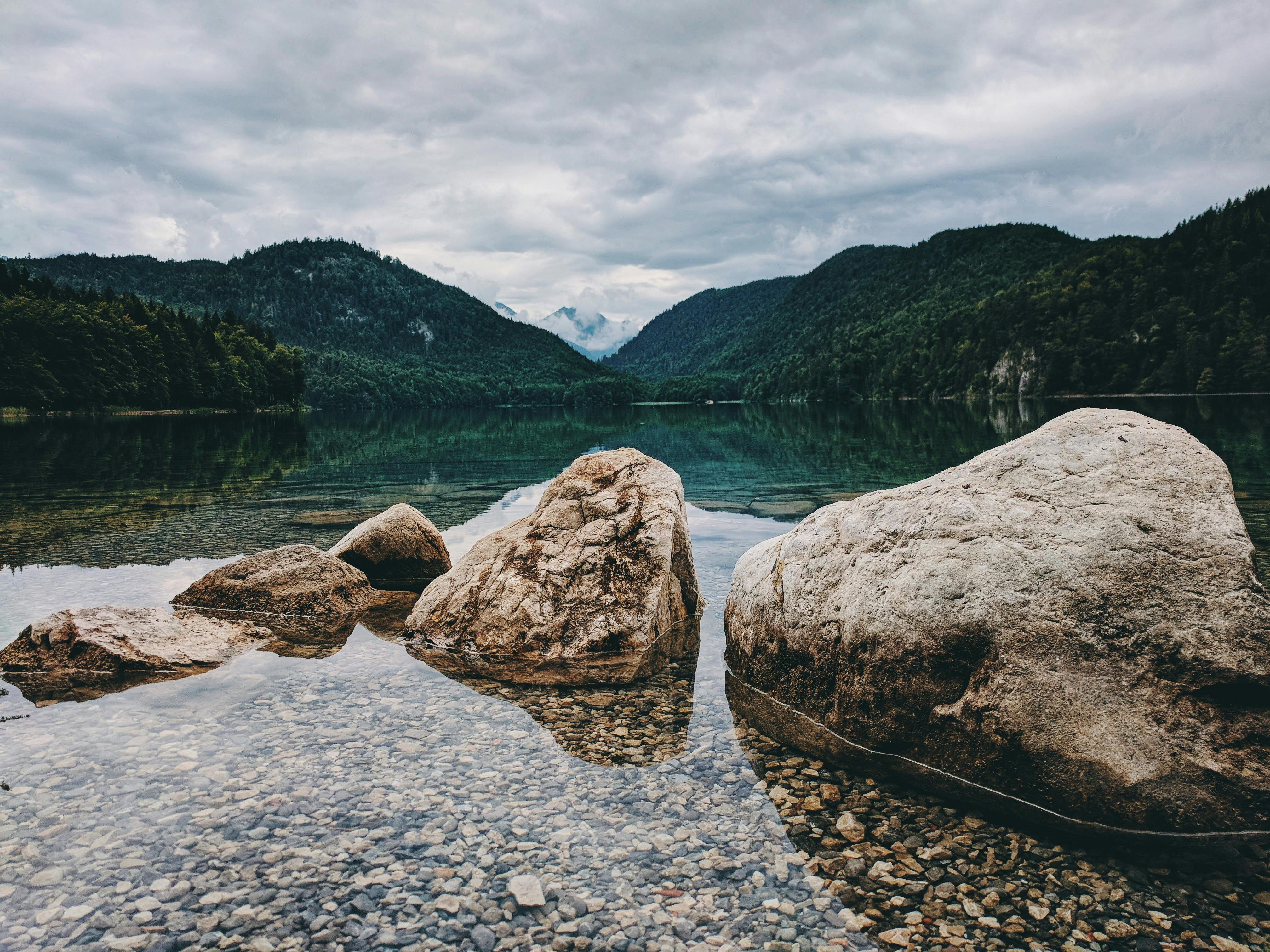
How to get there:
- Train: Take the EuroCity train from Copenhagen to Hamburg.
- Bus: FlixBus and Eurolines connect Copenhagen to Hamburg and Berlin.
- Hitchhiking: From Copenhagen, take the E45 highway south to the German border.
From Poland
- Train: Take the EuroCity train from Warsaw to Berlin.
- Bus: FlixBus, Eurolines and PolskiBus connect Warsaw to Berlin and Munich.
- Hitchhiking: From Warsaw, take the E65 highway west to the German border.
From Czech Republic
- Train: Take the EuroCity train from Prague to Munich or Berlin.
- Bus: FlixBus and Eurolines connect Prague to Munich and Berlin.
- Hitchhiking: From Prague, take the E55 highway north to the German border.
From Austria
- Train: Take the Railjet train from Vienna to Munich or Berlin.
- Bus: FlixBus and Eurolines connect Vienna to Munich and Berlin.
- Hitchhiking: From Vienna, take the A23 highway north to the German border.
From Switzerland
- Train: Take the EuroCity train from Zurich to Munich or Berlin.
- Bus: FlixBus and Eurolines connect Zurich to Munich and Berlin.
- Hitchhiking: From Zurich, take the A1 highway north to the German border.
From France
- Train: Take the TGV train from Paris to Stuttgart or Berlin.
- Bus: FlixBus and Eurolines connect Paris to Berlin and Munich.
- Hitchhiking: From Paris, take the A4 highway east to the German border.
From Belgium and Netherlands
- Hitchhiking: From Amsterdam, take the A3 highway east to the German border.
- Train: Take the Thalys train from Amsterdam or Brussels to Cologne or Berlin.
- Bus: FlixBus and Eurolines connect Amsterdam and Brussels to Berlin and Munich.
When to go:
Spring (March to May)
Pros:
- Mild weather (10-20°C/50-68°F)
- Fewer tourists
- Affordable accommodations
- Vibrant festivals (Oktoberfest-like celebrations in spring)
Cons:
- Occasional rain
- Some attractions still closed
Summer (June to August)
Pros:
- Warm weather (20-30°C/68-86°F)
- Long days
- Festivals and events (Rock am Ring, Tomorrowland)
- Beaches and lakeside activities
Cons:
- Peak tourist season
- Higher prices
- Crowded cities
Autumn (September to November)
Pros:
- Comfortable temperatures (10-20°C/50-68°F)
- Fewer tourists
- Harvest festivals (Oktoberfest)
- Scenic foliage
Cons:
- Rainy days
- Some attractions closing
Winter (December to February)
Pros:
- Magical Christmas markets
- Skiing and snowboarding
- Cozy atmosphere
- Lower prices
Cons:
- Cold weather (-2 to 5°C/28-41°F)
- Short days
- Some attractions closed
Best Time for Broke Backpackers
September to November and March to May offer ideal conditions:
- Mild weather
- Fewer tourists
- Affordable prices
- Vibrant festivals
Event-Based Travel
Hamburg Carnival (February/March)
Oktoberfest (September/October)
Berlin Music Festival (September)
Munich Christmas Market (December)
Best Itineraries:
3-Day Itinerary
Berlin Exploration
Day 1:
- Arrive Berlin, check-in hostel (€10-15/night)
- Visit Berlin Wall Memorial (free)
- Explore Kreuzberg neighborhood (street art, food)
- Nightlife: Kreuzberg’s bars (€5-10/drinks)
Day 2:
- Visit Museum Island (€18, free Thursdays 5-10 pm)
- Brandenburg Gate (free)
- Tiergarten Park (free)
- Currywurst dinner (€5-7)
Day 3:
- Checkpoint Charlie Museum (€12.50)
- Potsdamer Platz (free)
- Depart Berlin
1-Week Itinerary
Southern Germany Adventure
Day 1-2: Munich
- Explore Marienplatz (free)
- Visit Neuschwanstein Castle (€15)
- Enjoy Hofbräuhaus beer hall (€10-15)
Day 3-4: Bavarian Alps
- Take train to Garmisch-Partenkirchen (€10-20)
- Hike Zugspitze mountain (free)
- Visit Oberammergau village (free)
Day 5-6: Stuttgart
- Visit Mercedes-Benz Museum (€10)
- Explore Schlossplatz (free)
- Enjoy local wine (€5-10)
Day 7: Return to Munich, depart
2-Week Itinerary
Northern Germany Discovery
Day 1-3: Berlin
- Explore neighborhoods (Kreuzberg, Neukölln)
- Visit Berlin Cathedral (€7)
- Museum Island (€18, free Thursdays)
Day 4-6: Hamburg
- Visit Speicherstadt (free)
- Explore Reeperbahn nightlife (€10-20)
- Take harbor tour (€15)
Day 7-9: Cologne
- Visit Cologne Cathedral (free)
- Explore Roman-Germanic Museum (€9)
- Enjoy local beer (€5-10)
Day 10-14: Return to Berlin, explore surrounding areas (Potsdam, Sachsenhausen)
1-Month Itinerary
Germany Grand Tour
Week 1: Southern Germany (Munich, Bavarian Alps, Stuttgart)
Week 2: Northern Germany (Berlin, Hamburg, Cologne)
Week 3: Central Germany (Frankfurt, Heidelberg, Rothenburg)
Week 4: Eastern Germany (Dresden, Leipzig, Berlin)
3-Month Itinerary
Germany In-Depth
Month 1: Explore Berlin’s neighborhoods, culture and history
Month 2: Visit southern Germany’s cities, castles and mountains
Month 3: Discover northern Germany’s coastal towns, islands and festivals
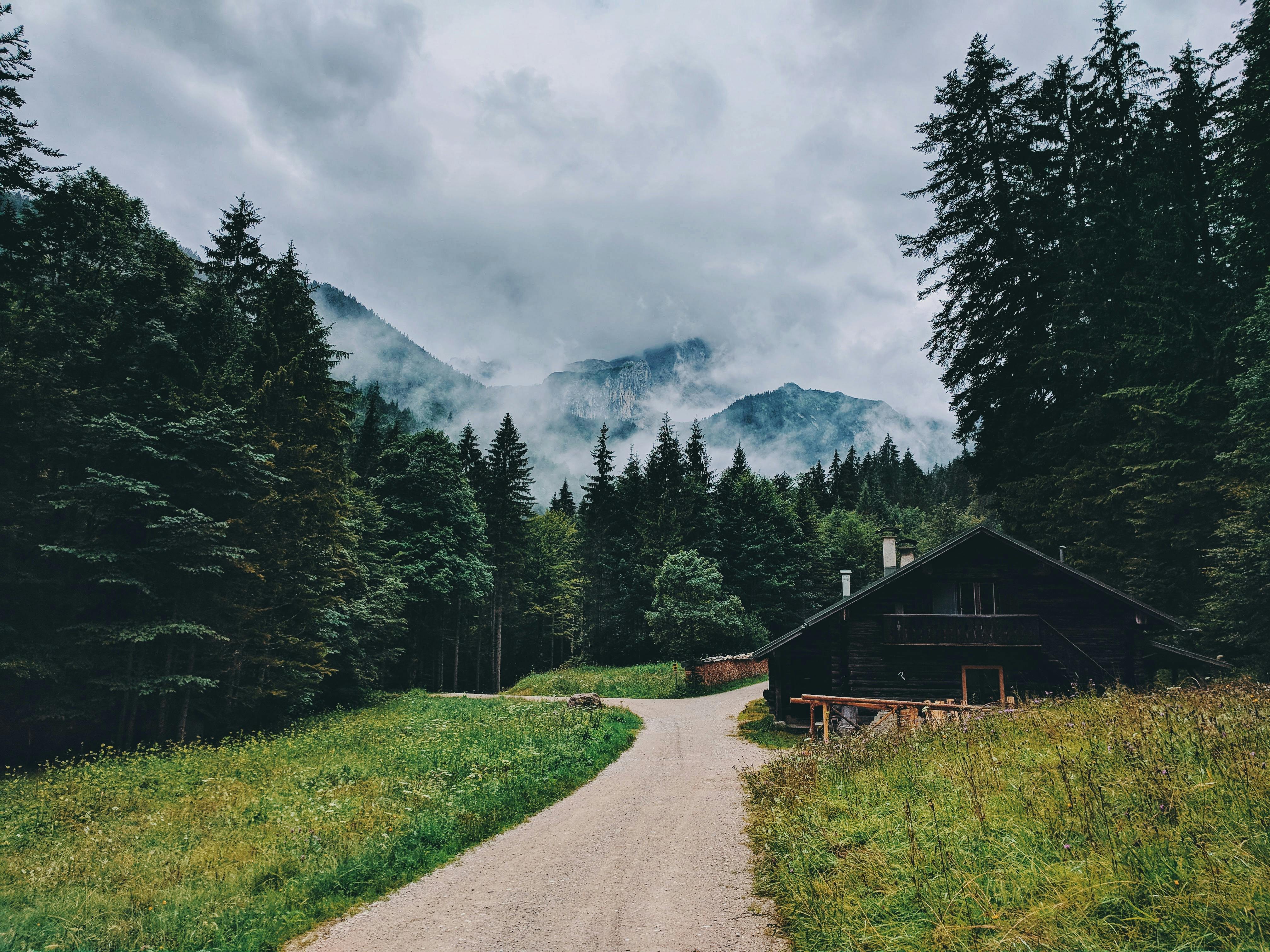
Transportation:
Germany’s efficient public transportation network makes exploring the country effortless. From trains and buses to trams and bicycles, various options cater to diverse needs and budgets.
Train Network
- Deutsche Bahn (DB): Germany’s national railway operator.
- ICE (InterCity Express): High-speed trains (up to 320 km/h).
- IC (InterCity): Connecting major cities.
- RE (Regional Express): Regional trains.
- S-Bahn (Suburban Railway): Urban commuter trains.
Bus Network
- FlixBus: Affordable, extensive network.
- Eurolines: International bus connections.
- Regional bus operators (e.g., RVG, VBB).
Urban Transportation
- U-Bahn (Subway): Efficient, widespread.
- S-Bahn (Suburban Railway): Connects city centers.
- Trams: Common in eastern Germany.
- Straßenbahn (Tram): Urban transportation.
Bicycle-Friendly Germany
- Bike-sharing systems (e.g., Call-a-Bike).
- Dedicated bike lanes.
- Long-distance cycling routes.
Ticketing and Fares
- Single tickets: Valid for one journey.
- Day passes: Unlimited travel.
- Weekly/monthly passes: Frequent travelers.
- Germany Rail Pass: Flexible train travel.
- Bahncard: Discounted train tickets.
Public Transportation Cards
- VBB (Verkehrsverbund Berlin-Brandenburg): Berlin region.
- MVV (Münchner Verkehrs- und Tarifverbund): Munich region.
- RVG (Rhein-Voltol-Gesellschaft): Cologne region.
Mobile Apps
Google Maps
DB Navigator (Deutsche Bahn)
FlixBus App
Moovit
Top things to do:
Berlin
Free Attractions:
- Berlin Wall Memorial
- Checkpoint Charlie
- Brandenburg Gate
- Museum Island (Thursday 5-10 pm)
- Kreuzberg Street Art
Budget-Friendly:
- Berlin Cathedral (€7)
- Pergamon Museum (€12)
- Kreuzberg’s Markthalle Neun (street food, €5-10)
- Berlin Underground Tour (€10)
- Clubbing in Kreuzberg (€5-10)
Munich
Free Attractions:
- Marienplatz
- Viktualienmarkt (food market)
- English Garden
- Nymphenburg Palace Park
- Surfer’s Corner (River Isar)
Budget-Friendly:
- Neuschwanstein Castle (€15)
- Deutsches Museum (€14)
- Hofbräuhaus Beer Hall (€10-15)
- Munich Residenz (€7)
- Schwabing’s shopping street (affordable eateries)
Hamburg
Free Attractions:
- Speicherstadt (warehouse district)
- Reeperbahn nightlife (window shopping)
- Elbphilharmonie Plaza
- HafenCity (harbor area)
- Planten un Blomen park
Budget-Friendly:
- Harbor Tour (€15)
- Miniatur Wunderland (€12)
- St. Michaelis Church (€5)
- Reeperbahn’s street food (€5-10)
- Karolinenviertel’s vintage shops
Cologne
Free Attractions:
- Cologne Cathedral (exterior)
- Roman-Germanic Museum (exterior)
- Hohenzollern Bridge
- Rhine River Promenade
- Street art in Ehrenfeld
Budget-Friendly:
- Cologne Cathedral interior (€1)
- Roman-Germanic Museum (€9)
- Kölnisches Stadtmuseum (€5)
- Hohenzollern Bridge love locks (€1)
- Traditional Kölsch beer (€5-10)
Frankfurt
Free Attractions:
- Römerberg Square
- Frankfurt Cathedral
- River Main Promenade
- Museumsufer (museum district)
- Kleinmarkthalle (food market)
Budget-Friendly:
- Frankfurt Tower (€6.50)
- Städel Museum (€12)
- Palmengarten (€7)
- Frankfurt Zoo (€10)
- Applewine taverns (€10-15)
Bavarian Alps
Free Attractions:
- Zugspitze mountain (hiking)
- Garmisch-Partenkirchen village
- Oberammergau village
- Alpine lakes (e.g., Königssee)
- Hiking trails (e.g., Wetterstein Mountains)
Budget-Friendly:
- Zugspitze cable car (€15)
- Neuschwanstein Castle tour (€15)
- Garmisch-Partenkirchen ski resort
- Oberammergau Passion Play (€20-30)
- Traditional Bavarian restaurants (€15-25)
Dresden
Free Attractions:
- Zwinger Palace (exterior)
- Frauenkirche
- Brühl’s Terrasse
- Elbe River Promenade
- Street art in Neustadt
Budget-Friendly:
Neustadt’s nightlife (€10-20)
Zwinger Palace interior (€12)
Dresden State Opera (€10-30)
Frauenkirche tower (€8)
Dresden Transport Museum (€9)
Food:
Food lover’s heaven, Germany is a land of various cuisines that reflects the rich history, culture, and geography of the country. From hearty meat dishes to delicate pastries, German cuisine satisfies every craving. The eating identity of Germany revolves around meat, bread, and beer. Classics like Schnitzel, Sauerbraten, and Currywurst show the nation’s affection for savory flavors, while regional delicacies like Bavaria’s Weisswurst and Hamburg’s Labskaus reveal the nation’s varied gastronomic face.
Traditional German cuisine always has something fresh from the bakery to accompany the main course. The dark, heavy breads such as Schwarzbrot and Vollkornbrot are complemented by a variety of cheeses, cold cuts, and spreads. Sweet tooth cravings are satisfied by flaky pastry items such as Strudel and Krapfen.
Centuries of Germany’s famous beer culture have a rich history. More than 1,300 breweries produce an astonishing variety of lagers, ales, and wheat beers. Traditional beer halls, such as Munich’s Hofbräuhaus, offer a great experience. Lively markets, like Markthalle Neun in Berlin and Viktualienmarkt in Munich, will sell fresh produce, artisan cheeses, and local delicacies. Vendors of street food provide lower-priced but equally mouth-watering options that include Currywurst, Bratwurst, and Schnitzel.
German gastronomy is radically different from north to south, from fish-oriented Labskaus and Fischbrötchen in Northern Germany to the rich meat dishes throughout Southern Germany. In the south, traditional Alpine cuisine is inspired by the Bavarian Alps, with game meats and wild mushrooms dominating.
Modern German cuisine is the perfect blend of tradition and innovation. Restaurants such as Nobelhart & Schmutzig in Berlin showcase creative reinterpretations of classic dishes. Food festivals like Oktoberfest and Berlin Food Week will celebrate Germany’s gastronomic movement.
Mealtimes are spent enjoying the company of friends and family. Table manners in Germany, such as waiting until everyone has received their food before commencing to eat, show respect for tradition.
A true gastronomic journey awaits in this vast land of Germany, with relishing of traditional tastes, trying local cuisine, and surprises by the creation of imagination through reinterpretation of classics.
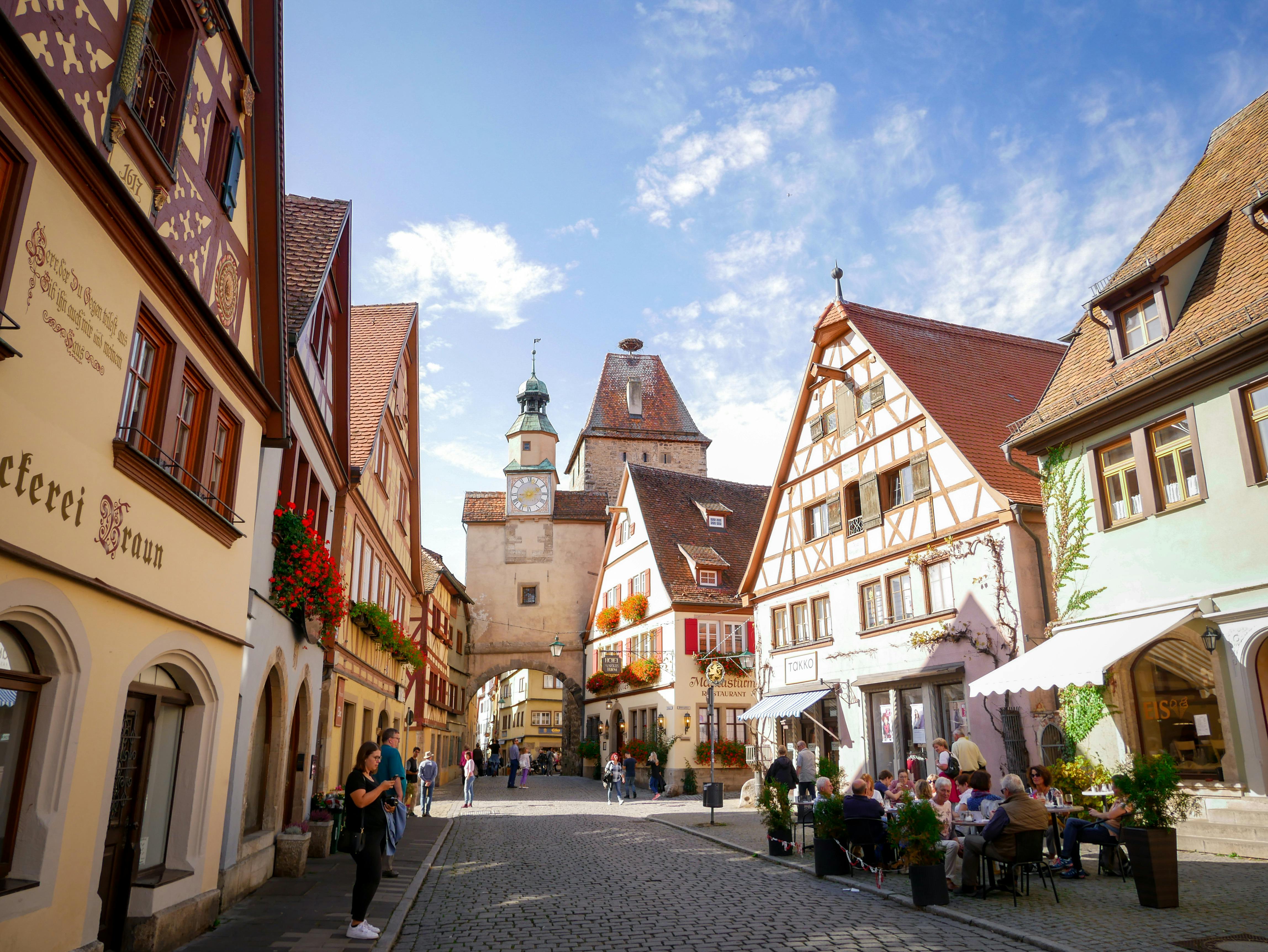
Culture:
Germany is a country with a highly vital and important cultural landscape, where the past and present coexist marvelously. From flamboyant magnificence residing in the Baroque palaces to avant-garde art in the streets of Berlin, the culture of Germany is dynamic and changing as time goes by.
At the core of German culture lies a high regard for precision, efficiency, and industriousness, firmly ingrained in the great Protestant tradition. An accent on discipline and responsibility has decisively influenced proficiency peculiar to Germany in engineering, punctilious craftsmanship, and the innovative spirit.
It is this complex history that gave birth to the richly diverse culture of Germany. The turbulent times, from the rise and fall of empires to the wars to reunification, have forged a strong sense of national identity. Museums, memorials, and historic sites remind poignantly of the complex heritage of Germany.
From the internationally famous composers Bach, Beethoven, and Wagner, who stamped their mark indelibly, to the festivals of classical music, such as the Bayreuth Festival, the arts are alive in Germany. Modern art is displayed around urban capitals like Berlin, Hamburg, and Munich.
The flair in Germany includes folk traditions like Oktoberfest and Christmas markets-a love of celebration and community. It’s those colorful festivals that bring people together and give them a mutual sense of community and history. Language and literature are an important part of German culture, and some of the nation’s most famous authors helped to form the identity of German literature, including Goethe, Schiller, and Mann. Also, philosophy played an important role with great thinkers like Kant, Nietzsche, and Marx making lasting marks.
They also place a very high value on education in German culture, hence the universities like Heidelberg and Berlin draw in a lot of scholars from all over the world. Its strong emphasis on scientific research and innovation has resulted in many discoveries and Nobel laureates.
Regional diversity also sets Germany’s cultural landscape. Bavaria is home to traditional Alpine culture, Hamburg boasts a proud heritage of the sea, and Berlin is multicultural.
For many years now, Germany has been a hub of international cultural exchange. Immigrants have made the country anew with fresh views, flavors, and artistic expression.
With all the complications of history, Germany is still a beacon to which tolerance, openness to new things, and progress aspire. A commitment to social justice, ecological sustainability, and human rights underlines the values in evolution within this country.
It represents a dynamic cultural entity carved by the complex past, innovative spirit, and varied regional landscapes that make up Germany. This is a very rich cultural heritage indeed that invites one for an exploration, reflection, and celebration.
Accommodations:
The lively hostel scene of Germany provides immersion for travelers with great mixes of affordability, community, and local charm. Ditch the luxury options for the authenticity of it all and stick with the really affordable, humble gems.
From sleek and modern to quaint family-run guesthouses, the styles vary in German hostels. A number of urban centers, like Berlin, Munich, and Hamburg, have an outstanding concentration of hostels, while smaller towns and rural areas boast secluded, picturesque retreats.
For the real hostel experience, take a chance on the unknown and book the cheapest. These humble properties are, in fact, hubs of genuine discussions among travelers and locals, surroundings with character, and insider knowledge from your hosts and staff.
The lowly-rated budget hostels often exceed expectations, providing clean-and-comfortable sleeping, common areas that foster socializing, and convenient locations to public transportation at an affordable price.
To fully appreciate the culture of hostels in Germany, research the neighborhoods rather than the prices, and read reviews from fellow travelers. Make an early reservation in case it’s peak season, and keep an open mind for flexibility in your stay.
Cultural hostel life in Germany includes kitchens, lounges, and organized events that can be shared with anyone within the compound. Share stories, traditions, and laughter with world travelers.
If you want to feel real Germany, you have to go out of the tourist areas: attend markets, try traditional food, and talk with locals. Come open-minded and patient, learn basic German phrases, respect the rules of the hostels, and respect other guests. Go out, explore your neighbourhood, find some hidden treasures, and soak up the atmosphere.
Scary as it might seem, the cheapest hostel booking comes with a few unexpected rewards: ultimate authenticity, real conversations with locals, and a story to remember. Get ready for hostels across Germany: take a deep breath in, click on the cheapest option, and dive head-first into the pulsating culture of this country.
Nightlife:
Nightlife in Germany can be dynamic and pulsating, offering unforgettable experiences to party enthusiasts and casual revelers alike. Underground clubs to hip bars, every city is different in its own unique way. The capital, Berlin, is famous for hedonistic nightlife- clubs pulsating to techno beats, avant garde art. Hamburg is the hub of Germany’s most risqué entertainment in its infamous Reeperbahn district. On the other hand, Munich’s Schwabing has a more refined and elegant atmosphere.
Just like many of the groundbreaking moments in Germany’s artistic history, the nightlife here is free and expressive. Cities like Cologne, Frankfurt, and Leipzig have a hot nightlife scene that combines just the right amount of local flavor with an international edge.
Cityscapes change altogether at night, as neon lights light up streets and alleys. The air pulsates with music-from live rock concerts to underground electronic raves. Social barriers dissolve in the nightclubs; new acquaintances are made.
Far from tourist areas, you need to leave if you want to feel the real nightlife of Germany. Find hidden corners, ask locals for pieces of advice, and be ready for spontaneous night adventures.
First of all, Germany is famous for club life: the best DJs of the world, excellent sound systems. Its beer is equally famous, with traditional beer halls and gardens offering a unique, convivial atmosphere.
When night gives over to morning, Germany’s cities show their softer side: rooftop bars and morning markets are places for reflection and rejuvenation.
Approach with an open mind, and Germany’s nightlife will pay you back in spades. Learn some simple German phrases to help facilitate a better relationship with locals. Obey club rules and other clubbers, too, and you’ll have absolutely no problems whatsoever.
Nightlife in Germany is the journey, not the destination. Spontaneous, exploring often unfamiliar parts of towns, giving yourself over to the rhythm: that’s the German nightlife-the intoxicating combination of art, music, and self-expression. Enjoy the party-the possibilities are endless.
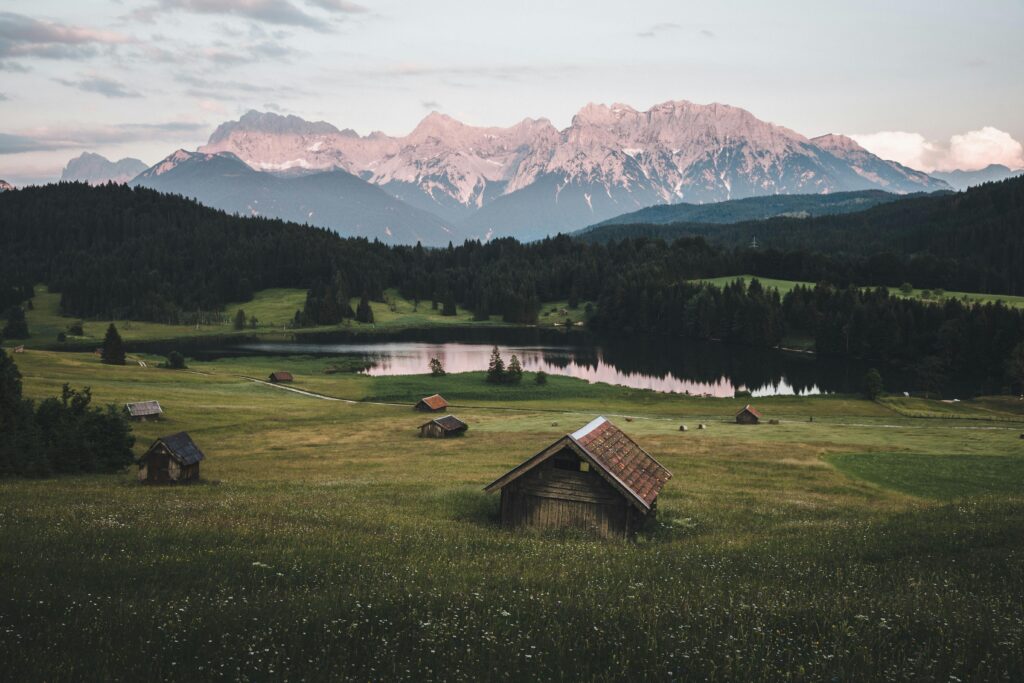
Backpacking Germany costs:
Daily Budget:
- Accommodation: €10-€15 ( approx. $11-$17 USD) per night for a hostel dorm or camping
- Food: €5-€10 ($5.50-$11 USD) per day for street food, supermarkets, or picnics
- Transportation: €5-€10 ($5.50-$11 USD) per day for public transportation or walking
- Attractions: €0-€5 ($0-$5.50 USD) per day for free walking tours or parks
- Total: €25-€40 ($28-$44 USD) per day
Weekly Budget:
Total: €175-€280 ($194-$311 USD) per week
Accommodation: €70-€105 ($77-$117 USD) for 7 nights in hostels or camping
Food: €35-€70 ($39-$77 USD) for 7 days of street food and supermarkets
Transportation: €35-€70 ($39-$77 USD) for 7 days of public transportation
Attractions: €0-€35 ($0-$39 USD) for 7 days of free attractions
Conclusion:
And there you have it-backpacking Germany on a completely broke budget. A little planning, flexibility, and creativity provide so many ways you can see this amazing country without breaking the bank.
From delicious street food to picturesque landscape hikes, Germany has it all for the reasonable-budget traveler. And with our tips on finding cheap accommodation, transportation, and attractions, you can have an epic adventure in Germany without breaking the bank.
